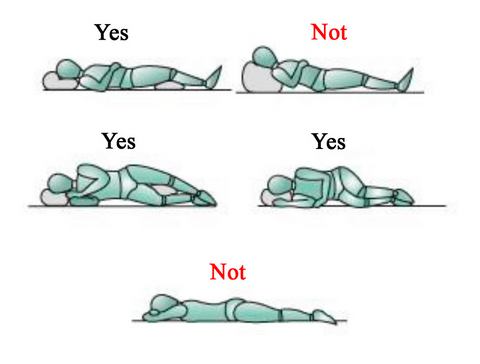That persistent tickle in your throat, erupting into a dry, hacking cough first thing in the morning – it can be incredibly disruptive and leave you feeling drained. If you've been experiencing a dry cough in the morning for months, you're not alone. This frustrating symptom can manifest in different ways, and understanding these variations can help pinpoint the cause.
This blog delves into eight common reasons behind a dry cough in the morning for months, explores the different types of dry coughs, and offers effective strategies to soothe them. Remember, this information is for educational purposes only and should not replace a doctor's diagnosis.
Why Does Morning Bring on the Dry Cough?

Waking up to a hacking cough can be a frustrating way to start the day. But why does this phenomenon seem to favor mornings? There are a few key factors at play:
-
Reduced Mucus Production: Throughout the night, your body naturally dials down mucus production. This can leave your airways feeling dry and irritated, triggering that cough reflex.
-
Airway Stagnation: While you sleep, your breathing slows and becomes shallower. This reduced airflow allows irritants and allergens that have settled in your airways to linger and potentially cause inflammation.
-
Posture: Lying down can contribute to postnasal drip, a condition where mucus drips down the back of your throat. This can tickle your throat and trigger coughing, especially upon waking.
-
Dehydration: During sleep, you lose fluids through breathing. This can further dry out your airways and exacerbate a cough.
These factors combine to create a prime environment for a morning dry cough. By understanding these mechanisms, you can explore strategies to combat them and find relief for those early morning coughs.
8 Common Causes of Dry Cough in the Morning:
-
Postnasal Drip: When excess mucus drips down the back of your throat from your sinuses, it can irritate your airways and cause a morning cough. Allergies, colds, or even a deviated septum can contribute to postnasal drip.
-
Allergies: Dust mites, pollen, pet dander, and other allergens can trigger a cough, especially in the mornings when exposure may be higher.
-
Acid Reflux (GERD): Stomach acid rising into your esophagus (GERD) can irritate your throat, causing a dry cough, particularly when lying down or upon waking.
-
Dry Air: Dry air, especially during winter, can dehydrate your airways and lead to a morning cough.
-
Medications: Certain medications, particularly blood pressure medications known as ACE inhibitors, can have a dry cough as a side effect.
-
Smoking: Smoking irritates the airways and hinders your body's ability to clear mucus, leading to a persistent cough, often worse in the mornings.
-
Underlying Conditions: In some cases, a chronic dry cough can be a symptom of an underlying medical condition like asthma, bronchitis, or even whooping cough.
-
Environmental Irritants: Smoke, dust, and other airborne pollutants can irritate your airways and trigger a morning cough.
Types of Dry Cough in the Morning
Dry coughs can vary in sound and intensity. Here's a breakdown of some common types, including wheezing and persistent coughs:

- Hacking Cough: A forceful, dry cough often associated with postnasal drip, allergies, or irritation.
- Barking Cough: A harsh, high-pitched cough, sometimes seen in croup (a viral infection affecting the upper airway) or whooping cough.
- Tickle in the Throat Cough: A persistent dry cough triggered by a tickling sensation in the throat, often linked to GERD or postnasal drip.
- Wheezing Cough: This cough produces a whistling sound during exhalation, indicating airway narrowing. It can be a sign of asthma, bronchitis, or even heart failure.
- Persistent Cough: A cough lasting longer than eight weeks is considered persistent and may require medical evaluation to rule out underlying conditions.
How to Get Rid of Your Morning Dry Cough
Here are some strategies to find relief from that dry morning cough, depending on the type and potential cause:
- Increase Humidity: Use a humidifier at night to add moisture to the air, soothing your airways and reducing irritation.
- Hydrate: Drink plenty of water throughout the day to keep your airways lubricated. This is especially important before bed to combat morning dryness.
- Saline Nasal Irrigation: Using a neti pot or saline nasal spray can help clear out mucus and allergens in your nasal passages, reducing postnasal drip and subsequent coughing.
- Manage Allergies: If allergies are the culprit, take over-the-counter antihistamines or consult your doctor for a personalized allergy management plan.
- Dietary Changes: If you suspect GERD is a factor, avoid foods that can trigger heartburn, such as spicy or acidic foods, and elevate your head while sleeping to prevent acid reflux.
- Throat Lozenges: Soothing lozenges can help numb a dry, irritated throat and provide temporary relief.
- Over-the-Counter Cough Suppressants: Consider using cough suppressants if your cough is severe and disruptive, but consult a doctor for prolonged use.
Home Remedies for Dry Cough
While a doctor's advice is crucial for persistent coughs, here are some home remedies that can offer relief for a mild morning dry cough:

- Hydration is Key: Drink plenty of fluids throughout the day, especially warm liquids like herbal teas, broths, or plain warm water. This helps thin mucus and soothe a dry throat.
- Honey for Relief (for adults only): A spoonful of honey can coat and soothe a scratchy throat, offering temporary relief. However, avoid giving honey to children under 1 year old due to the risk of infant botulism.
- Steam it Up: Inhaling steam from a hot shower or using a humidifier can add moisture to the air, loosening mucus and easing coughs.
- Soothing Lozenges: Sucking on sugar-free lozenges can provide a lubricating effect and numb a sore throat.
- Gargle with Salt Water: Gargling with warm salt water can help reduce inflammation and provide temporary relief from a scratchy throat.
When to See a Doctor
If your morning dry cough in the morning for months, worsens, or is accompanied by other symptoms like fever, shortness of breath, wheezing, or blood in your phlegm, it's crucial to see a doctor. They can help identify the underlying cause and recommend appropriate treatment.
Additional Tips for Morning Dry Cough Relief
Beyond these home remedies, there are additional steps you can take to specifically target that disruptive morning cough, helping you wake up feeling refreshed and ready to breathe easy.

- Elevate Your Head While Sleeping: This can help prevent acid reflux, a common culprit behind morning coughs. Use extra pillows or prop up the head of your bed.
- Identify and Avoid Triggers: If allergies are suspected, try identifying and avoiding allergy triggers like dust mites, pollen, or pet dander. Consider using air purifiers and regularly cleaning bedding and surfaces.
- Quit Smoking: Smoking is a major irritant to the airways and can worsen a morning cough. If you smoke, quitting is the single best thing you can do for your lung health.
- Rest Your Voice: Avoid yelling, whispering, or excessive talking, which can further irritate your throat.
Remember
- These home remedies and strategies are for mild coughs. If your cough is severe, persistent, or accompanied by other concerning symptoms, consult a doctor for proper diagnosis and treatment.
- This blog is for informational purposes only and should not be a substitute for professional medical advice. Always consult your doctor for personalized recommendations.
Conclusion
By understanding the causes and types of dry coughs, implementing simple strategies like hydration and home remedies, and seeking professional help when necessary, you can conquer that disruptive cough in the morning for months and greet the day feeling refreshed and healthy. Take charge of your respiratory health and breathe easy!















